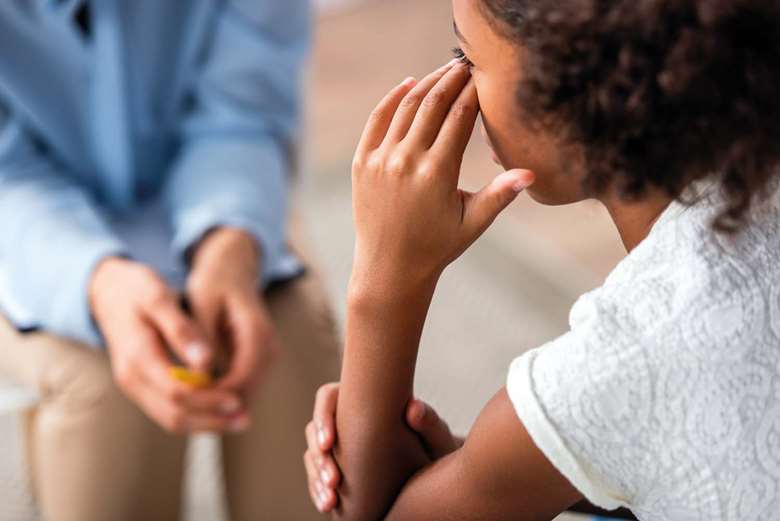Home’s therapeutic provision helps to foster independence
Nicole Weinstein
Tuesday, September 26, 2023
Children’s home specialist support jointly funded by health and social care agencies enables young people to successfully transition to community placements.

ACTION
The Croft is a residential children’s home providing onsite therapeutic mental health support for children and young people in Wakefield who have complex and challenging needs.
Run jointly by Wakefield Council and South West Yorkshire Partnership NHS Foundation Trust (SWYPT), the Ofsted-registered, two-bedded children’s home opened in March 2023.
It has a team of two child and adolescent mental health service (CAMHS) enhanced outreach workers onsite Monday to Friday to provide bespoke specialist intervention for two of the district’s most vulnerable 11- to 17-year-olds.
“These young people have experienced trauma, abuse and violations of trust in their relationships, often resulting in psychological, emotional, cognitive and developmental barriers.
“They may attempt to harm themselves and need close supervision,” explains Vicky Schofield, corporate director for children and young people at Wakefield Council.
The day-to-day running of the children’s home comes under the remit of social care, with the manager and “responsible adult” employed by this service.
CAMHS outreach team are jointly employed by SWYPT and the local authority to “embed” a therapeutic approach into the provision. Health commissioners and the children in care service within the council make joint decisions on who is eligible to enter the home.
“Health and social care jointly contribute to the costs of the initiative in the knowledge that there are significant potential benefits to both the children and each of their respective systems,” Schofield explains.
But it’s “not just a couple of hours of therapy a week”, explains Bethany O’Connor, The Croft’s therapeutic mental health practitioner, who works alongside the assistant psychologist, and whose work is overseen by CAMHS’ clinical psychologist.
“It’s a whole approach to caring for these young people, which is therapeutic in nature – and bespoke to their needs.”
CAMHS carry out direct interventions with the young people and work with the whole staff team – which includes three managers from social care and 10 recovery support workers – to develop bespoke models of care focusing on “creating consistency, routine, boundaries and levels of expectation”.
All staff have been trained in developmental trauma, attachment theories, understanding self-harm and suicidal ideation, and therapeutic parenting. They also receive ad hoc training on the individual behaviours of the young people in placement.
“The Croft aims to provide a stable and consistent environment for young people who have experienced placement breakdowns and moves out of area,” explains O’Connor.
“Challenges are met with empathy and understanding from a fully briefed and experienced team. We help them to rebuild their trust in carers and rewrite the negative thoughts they have about themselves.
“When they feel safe and secure, we work with them on the trauma they have experienced.”
Reflecting on plans to develop regional commissioning, Schofield says it would be “incredibly difficult’ to replicate this ‘specific and bespoke” model on a regional basis, where there would be “thousands of children, multiple health and care partnerships, and lots of different providers” in the mix.
She says: “In my view, the best arrangements for children and young people are developed locally.”
IMPACT
Four months into the programme and the first young person is “about to move on” to a lower level of care in the council’s two-bedded residential children’s homes.
“It’s still early days, but we can see the impact,” O’Connor says. “One young person is at the point where he is able to implement the mental health strategies that have been put in place and the other, who will remain in placement for 12 months – the maximum stay – has gone from self-harming on a daily basis and needing a high level of restraint in his previous placement, to rarely harming himself and coming off his mental health medication.
“He engages in structured therapy twice a week and he’s developed a better understanding of his past experiences and has made positive relationships with the staff,” O’Connor says.
Although there is “clearly” a need for this level of “crisis care” in Wakefield, Schofield says the model is part of a broader service-wide offer.
“We’ve decommissioned our larger children’s homes in favour of two-bedded children’s homes on residential streets with smaller staff teams where two young people can be more easily matched,” she says.
“This allows us to look after our most complex children locally, rather than move them into independent residential provision, often outside Wakefield. We’ve reduced the number of children placed outside Wakefield by 50 per cent over the past 15 months.”
Young people housed in Wakefield’s first pilot of two-bedded children’s homes in 2021 have had “significantly better outcomes”, Schofield says, referring to the data from a strengths and difficulties questionnaire.
“They have improved emotional wellbeing, no further placement disruptions, engagement and attainment in education and a significant reduction in missing incidents, which, for most children, were eradicated completely.”
She adds: “It’s the detailed local knowledge of the children, their outcomes, the costs to the system and our partnership relationships that has allowed us to develop this local model.”




